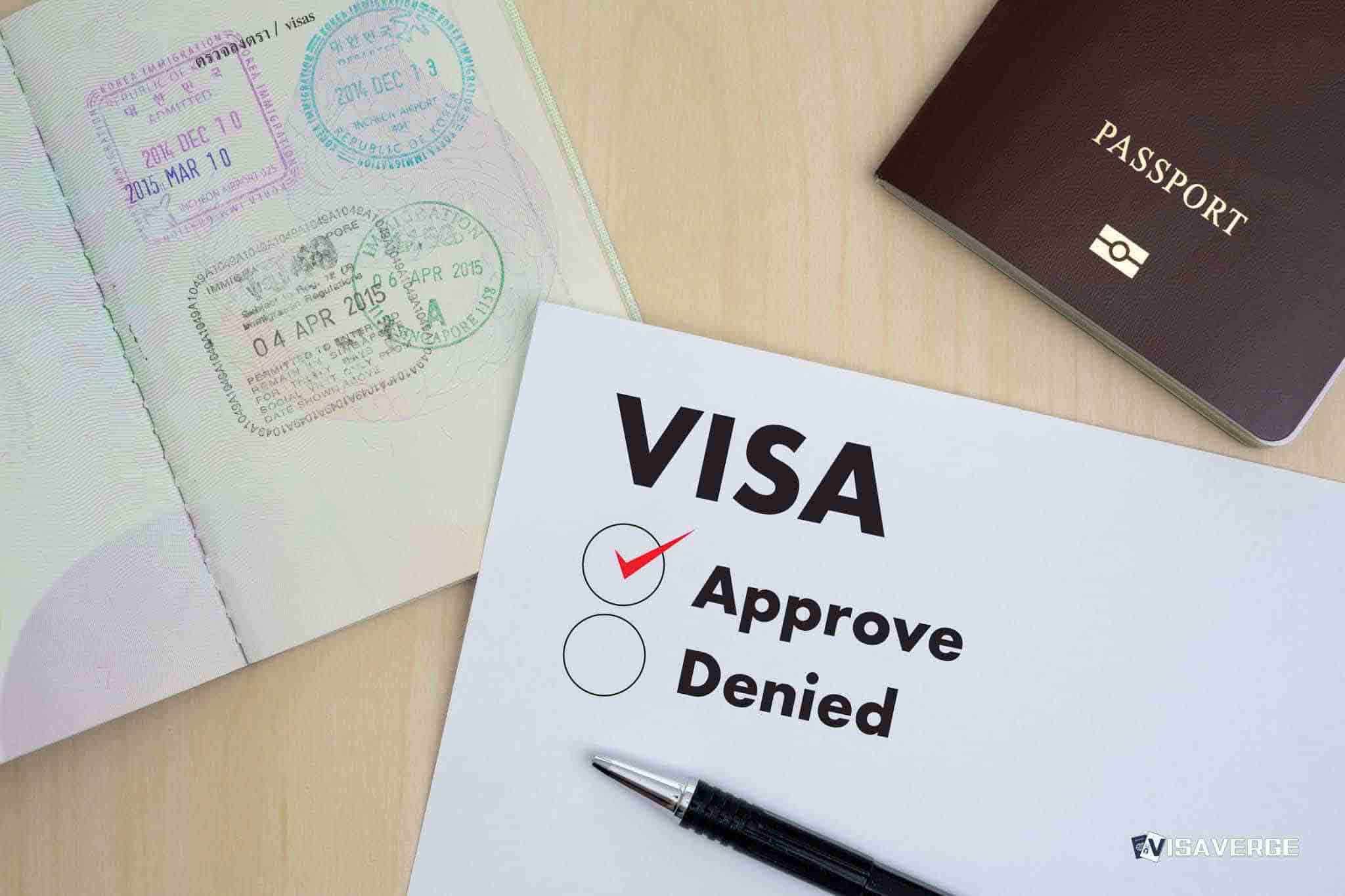Key Takeaways
• On May 28, 2025, US began aggressively revoking Chinese Student Visas, targeting STEM fields and CCP links.
• Lehigh University faces impact with 1,000+ international students; 65.1% of them Chinese in 2020.
• New visa interviews for Chinese students are paused indefinitely, affecting Fall 2025 admissions cycle.
On May 28, 2025, the United States 🇺🇸 government made a major announcement that is already sending shockwaves through universities and communities across the country. Secretary of State Marco Rubio revealed that the U.S. would start aggressively revoking Chinese Student Visas, especially for those studying in sensitive fields or with suspected ties to the Chinese Communist Party. At the same time, the government paused new student and exchange visitor visa interviews for Chinese nationals, a move that could last for months. This policy shift is part of a broader set of Trump administration actions aimed at tightening restrictions on international student visas, with a special focus on students from China.
For the Lehigh Valley, Pennsylvania, and especially for Lehigh University, these changes are not just headlines—they are already affecting real people. Hundreds of students, most of them from China, could lose their ability to study, work, and live in the United States 🇺🇸. Lehigh University, known for its large Chinese student population, is likely to be among the hardest hit. The effects ripple out to the local economy, university finances, research programs, and the lives of students and their families.

What’s Happening: The New Policy Explained
Who is affected?
Chinese nationals currently studying or planning to study in the United States 🇺🇸, especially those in science, technology, engineering, and math (STEM) fields, or those suspected of having links to the Chinese Communist Party.
What is the policy?
The U.S. government is actively revoking Chinese Student Visas and has paused new visa interviews for Chinese students and exchange visitors. Students with existing interview appointments will still be processed, but no new interviews are being scheduled until further notice.
When did this start?
The policy took effect in late May 2025, just as universities were preparing for the summer and fall admissions cycles.
Where is the impact greatest?
While the policy applies nationwide, its effects are especially strong in places with large Chinese student populations, such as the Lehigh Valley and Lehigh University.
Why is this happening?
The Trump administration, led by Secretary of State Marco Rubio, says the policy is needed for national security reasons. Officials claim that some Chinese students may be involved in espionage or have ties to the Chinese government.
How is it being enforced?
The U.S. Department of State and Department of Homeland Security are working together to identify and revoke visas. Immigration records are updated in the federal Student and Exchange Visitor Information System (SEVIS), and affected students are notified by their universities.
The Numbers: How Many Are Affected?
The scale of the impact is significant:
- Pennsylvania hosts more than 41,500 international students, making up 8.7% of all full-time students in the state.
- Lehigh University has about 1,000 international students and scholars. Chinese students are the largest group.
- In 2020, Lehigh had 669 Chinese students, which was 9.5% of the total student body and 65.1% of all international students.
- As of Fall 2024, there were 172 Chinese undergraduates at Lehigh, with China as the top country of origin for international students.
These numbers show why Lehigh University and the Lehigh Valley are especially vulnerable to the new visa policy.
What Happens to Students When Visas Are Revoked?
For students, the consequences are immediate and serious. Here’s what happens step by step:
- Official Notification:
Students whose visas are revoked receive an official notice from the university and/or federal authorities. - SEVIS Termination:
Their immigration records are terminated in the federal SEVIS database, which means they lose their legal status in the United States 🇺🇸. -
Loss of Legal Status:
Without a valid visa and SEVIS record, students are no longer allowed to stay in the country. They may have to leave quickly or risk being out of status. -
University Support:
Offices like Lehigh’s Office of International Students and Scholars step in to offer guidance, explain rights, and help students understand their options. -
Counseling and Legal Help:
Students are encouraged to use university counseling services and seek legal advice to deal with the emotional and practical challenges. -
Campus Protocols:
If federal immigration officers come to campus, the Lehigh University Police Department is the main contact point.
This process is stressful and confusing for students, many of whom have spent years building their lives in the United States 🇺🇸.
How Are Universities Responding?
Lehigh University’s leaders, including Provost Nathan Urban and Vice Provost Cheryl Matherly, have acknowledged the visa revocations. They are providing support and resources to affected students and are closely watching for further developments. The university has protocols in place in case federal immigration officers appear on campus.
University officials across the country are worried about several things:
- Disruption to Academic Programs:
Students may have to leave in the middle of their studies, which can delay or end their academic progress. -
Loss of Tuition Revenue:
International students, especially from China, pay full tuition and are a major source of income for universities. -
Impact on Research:
Many Chinese students work in important research areas like engineering, biotechnology, and artificial intelligence. Their sudden departure could hurt ongoing projects. -
Diversity and Global Partnerships:
International students bring different perspectives and help build global connections. Losing them makes campuses less diverse and less connected to the world.
The Lehigh Valley: Local Impact
The Lehigh Valley stands to lose more than just tuition dollars. International students contribute to the local economy by renting apartments, shopping, eating out, and participating in community life. They also bring cultural diversity, which enriches the region.
If hundreds of Chinese students are forced to leave, the effects will be felt by:
- Landlords and local businesses that rely on student customers
- Community organizations that work with international students
- Local residents who benefit from cultural events and exchanges
Lehigh University is likely to be the hardest hit, but other colleges and universities in the area could also feel the impact.
Why Is the U.S. Government Doing This?
Secretary of State Marco Rubio and the Trump administration say the policy is needed to protect national security. They argue that some Chinese students may be involved in spying or may be under the influence of the Chinese Communist Party. The government says it is focusing on students in “critical fields,” such as science and technology, where sensitive research takes place.
However, immigration lawyers and university officials point out that the process for getting a student visa is already very strict. Students must pass background checks and provide detailed information about their studies and funding. Mass revocations suggest a change in policy, not individual wrongdoing.
How Are Students and Advocates Reacting?
For students, the new policy brings anxiety, uncertainty, and fear. Many worry about being forced to leave the country, losing years of progress, and disappointing their families. Some are afraid to speak out, fearing it could make their situation worse.
International student advocates and immigration lawyers are raising concerns about:
- The emotional toll on students who suddenly lose their legal status
- The fairness of revoking visas without clear evidence of wrongdoing
- The damage to the reputation of American universities as welcoming places for global talent
As reported by VisaVerge.com, these concerns are echoed by many in the academic community, who see the policy as part of a larger trend of increasing scrutiny and restriction of Chinese nationals in U.S. academia.
What Should Affected Students Do?
If you are a Chinese student at Lehigh University or another U.S. school and you receive notice that your visa has been revoked, here are some steps you should take:
- Contact your university’s Office of International Students and Scholars immediately for guidance.
- Check your SEVIS status and keep records of all communications.
- Seek legal advice from an immigration attorney who understands student visa issues.
- Use university counseling services to help manage stress and anxiety.
- Know your rights if approached by federal immigration officers. Ask for identification and contact your university’s designated official.
For more information about SEVIS and your immigration status, visit the U.S. Department of Homeland Security’s SEVIS page.
The Bigger Picture: Trends and Background
Chinese students have long been the largest group of international students in the United States 🇺🇸. In 2024, there were over 277,000 Chinese students enrolled at American colleges and universities. Lehigh University has consistently ranked among the top U.S. schools for Chinese student enrollment, with steady growth over the past decade.
The Trump administration has a history of targeting international students with restrictive policies. In the past, there were attempts to ban all international students from certain universities, though some of these efforts were stopped by court orders. The current policy is the latest in a series of actions that make it harder for Chinese students to study in the United States 🇺🇸.
What’s Next? Future Outlook
The pause on new visa interviews for Chinese students is expected to last until further notice, which could affect the Fall 2025 admissions cycle. Universities and affected students are likely to challenge the policy in court and through advocacy efforts.
If the policy remains in place, universities with large Chinese student populations, like Lehigh, could face serious financial and academic problems. The loss of tuition revenue, disruption to research, and damage to international partnerships could have long-term effects.
Multiple Perspectives: Who Says What?
- U.S. Government:
Says the policy is needed for national security and to protect sensitive research. -
Universities:
Argue that international students are vital for diversity, research, and finances. They want clearer, more stable policies. -
Students:
Feel anxious and uncertain about their futures. Many are worried about being forced to leave and losing everything they have worked for. -
Local Community:
Stands to lose not only money but also the cultural and social benefits that international students bring.
Key Data for Lehigh University
| Metric | Value (2024/2025) |
|---|---|
| Total International Students | ~1,000 |
| Chinese Students (2020) | 669 |
| Chinese Undergraduates (2024) | 172 |
| % of Student Body (Chinese) | Up to 9.5% |
| % of International Student Body (Chinese) | Up to 65.1% |
| Nonresident Undergraduates (2024) | 652 |
Where to Get Help and More Information
If you are affected by these changes or want to learn more, here are some important resources:
- Lehigh University Office of International Students and Scholars:
global.lehigh.edu/oiss
Email: [email protected]
Phone: (610) 758-4859 -
Lehigh University Counseling and Psychological Services:
studentaffairs.lehigh.edu/counseling -
U.S. Department of State – Bureau of Consular Affairs:
travel.state.gov -
U.S. Department of Homeland Security – SEVIS:
ice.gov/sevis
Takeaways and Next Steps
The revocation of Chinese Student Visas is already causing real hardship for students, universities, and communities in the Lehigh Valley and across the United States 🇺🇸. The policy, led by Secretary of State Marco Rubio, is meant to address national security concerns but is also disrupting academic programs, research, and university finances. Students face sudden loss of legal status, uncertainty about their futures, and emotional stress.
Universities like Lehigh are working to support affected students, but the situation remains uncertain. The pause on new visa interviews means that the impact could grow in the coming months, especially as the next academic year approaches.
If you are a student, university official, or community member, stay informed, use available resources, and seek help if needed. For the latest updates and official guidance, check the U.S. Department of State’s visa information page.
Analysis from VisaVerge.com suggests that the coming months will be critical in shaping the future for Chinese students in the United States 🇺🇸 and for the universities and communities that depend on them. As legal, political, and institutional responses develop, the story is far from over.
Learn Today
Chinese Student Visas → Visas issued to Chinese nationals allowing study at US educational institutions.
SEVIS → A federal database tracking student and exchange visitor immigration status in the US.
Visa Revocation → The official cancellation of a previously granted visa, ending legal stay rights.
STEM Fields → Academic disciplines of Science, Technology, Engineering, and Mathematics, often under visa scrutiny.
Trump Administration → The US government administration led by Donald Trump from 2017 to 2021, initiating current policies.
This Article in a Nutshell
The US government started revoking Chinese Student Visas in May 2025, targeting sensitive fields. Lehigh University’s large Chinese population faces disruptions in academics, finances, and research. The administration paused new visa interviews, affecting thousands and causing widespread anxiety among students and universities nationwide.
— By VisaVerge.com













